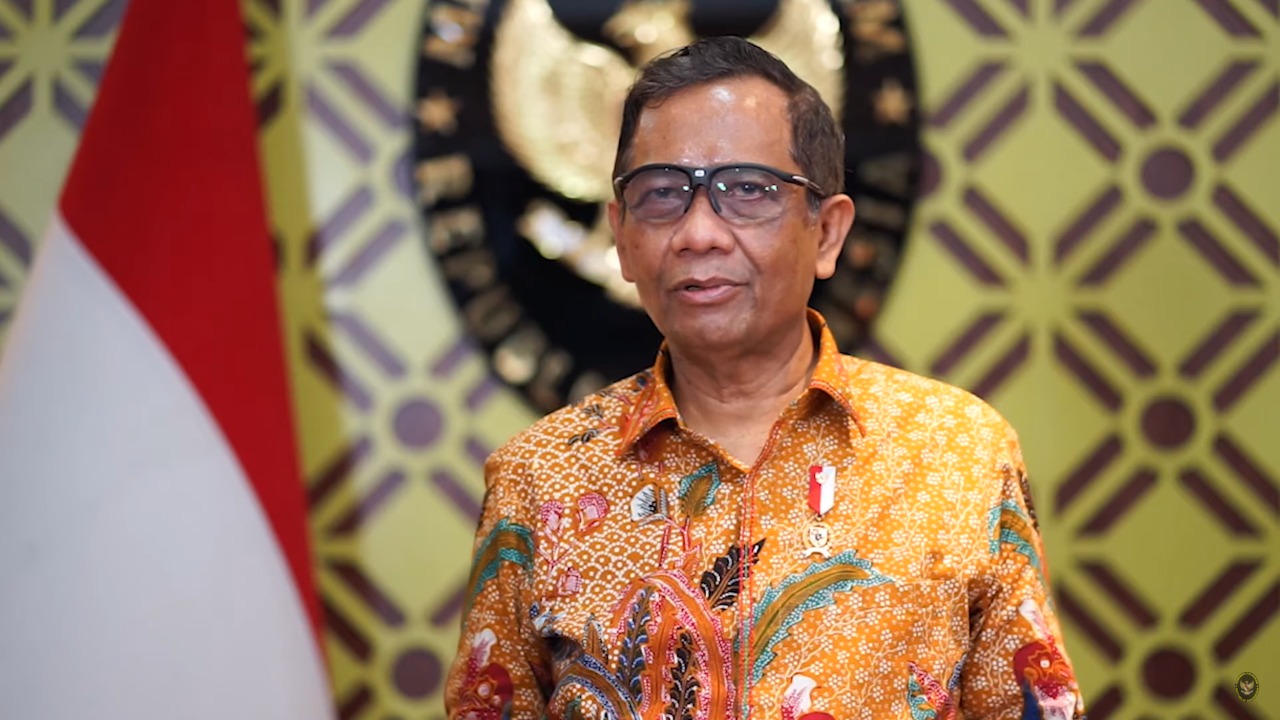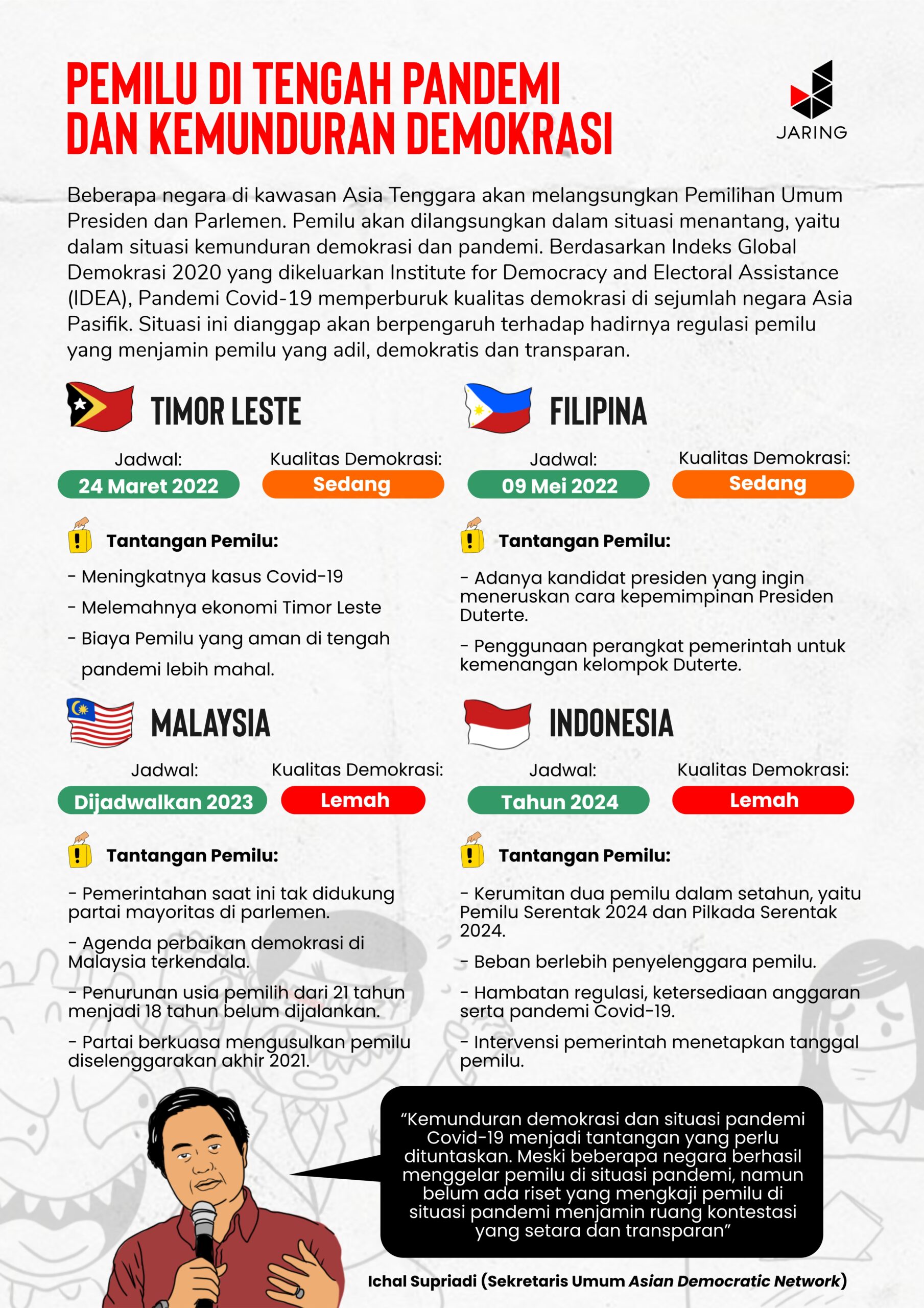The D-day of the voting day for the upcoming 2024 general election has not yet been decided. Both the government, the House of Representatives (DPR), and the General Elections Commission (KPU) have all insisted on defending their respective proposals. “The Election Commission and the Government have not yet agreed, so the discussion is protracted,” said Deputy Chairman of Commission 2 of the DPR, Saan Mustopa in a webinar titled Synergy between Election Organizers and Stakeholders to Succeed the 2024 Election, Thursday, October 7, 2021.
The government is known to push for the 2024 election voting to be held on May 15, 2024. Instead, the Election Commission has designed the stages of the election to start 25 months before the vote. By doing so, the general election will be held on February 21 and the regional head election on November 27. “The House is also polarized. There are those who agree with the government’s proposal and others who agree with the Election Commission’s proposal,” he said.
Of the 9 factions in the House of Representatives, 4 of them agreed with the Government’s proposal, namely the National Democratic (F-Nasdem), the Golkar Party (F-Golkar), the National Mandate Party (F-PAN), and the Greater Indonesia Movement Party (F-Gerindra). Meanwhile, the Indonesian Democratic Party of Struggle (F-PDIP), the United Development Party (F-PPP), the National Awakening Party (F-PKB), and the Prosperous Justice Party (F-PKS) agreed with the Election Commission’s proposal.
In this electoral case, according to Saan, who is also a politician of the Nasdem Party, supports the government’s efforts to streamline the election process. He considered that the process of holding elections for more than 20 months was inefficient. He encouraged election administrators to optimize the function of the recapitulation system application (Sirekap) and simplify ballot papers. “So that it saves state expenditures during the pandemic,” he said.
The House of Representatives will again discuss the election schedule after the recess period ends on October 31. This was done because the work meeting on Wednesday, October 6, 2021, which was originally supposed to discuss and decide the voting schedule was postponed due to the Ministry of Home Affairs being unable to attend. “It is important to set as soon as possible so that the stages are prepared. Because if it is not decided this year, it will cause uncertainty,” said Saan.
The Coordinating Minister for Political, Legal, and Security Affairs (Menko Polhukam) Mahfud MD previously mentioned that the proposed election schedule prepared by the Election Commission has had the potential to disrupt national security stability. The government is concerned that a too-long transition period will disrupt a number of government agendas, such as the recovery of the national economy and the handling of the Covid-19 pandemic. “This will make the election long ahead and long back. This means that the stages start early and the distance from the inauguration of the president-elect is too far,” Mahfud explained in a press statement on September 27, 2021.
Therefore, the government asked the Election Commission to shorten the time for the stages. A campaign that usually lasts 7 months, for example, needs to be trimmed down to just 4 months. While the regional head election campaign is from 4 months to 2 months. According to Mahfud, the process of election disputes at the Election Supervisory Body (Bawaslu) and the Constitutional Court also needs to be shortened. The process of tiered votes recapitulation is expected to be shorter by utilizing digital technology.

Even so, the commissioner of General Election, I Dewa Kade Wiarsa Raka Sandi said that the commission could not immediately cut down the process stages. Because the implementation of the 2024 Simultaneous Election is contained in Law Number 7 of 2017 concerning General Elections and Law Number 10 of 2016 concerning the Second Amendment to Law Number 1 of 2015 concerning Stipulation of Government Regulations in Lieu of Law Number 1 of 2014 concerning to election for Governors, Regents, and Mayors become Law.
This law stipulates a time limit related to the stages of the election which must begin 20 months before the vote with the day and date of voting. Meanwhile, the implementation of the regional elections is locked in November 2024 through Article 201 paragraph 8 of the Regional Election Law. By doing so, between the 21 February 2024 election voting and the regional election, it will take about 9 months for the Election Commission to complete the entire agenda. Among other things, post-election disputes. Reflecting on the previous election, according to Dewa, the dispute process could take up to four months. Most of the PHPU (general election result dispute) cases are dominated by disputes between legislative candidates within political parties.
The House said that if the disputed process had not been completed, the final election result could not be determined. In fact, legal certainty regarding election results is the basis for political parties to nominate candidates for regional heads at the provincial and district/city levels in November 2024. “The Commission does not have enough time to prepare the 2024 Simultaneous Regional Head Elections,” he said.
The researcher of the Network for Democracy and Electoral Integrity (Netgrit) Hadar Nafis Gumay suggested that the government let the KPU determine the election schedule. This is because the determination of the voting schedule is the authority of the General Election Commission as stated in Article 167 paragraph 2 of the Election Law which states that the day, date, and time of election voting are determined by an Election Commission’s decision.
He reminded us that the stages of the presidential election are not only about the time of voting. But there is a time for a tiered recapitulation and dispute over the results at the Constitutional Court (MK). There is also the possibility of a second round. After voting, there is still a stage of tiered recapitulation and dispute in the Constitutional Court. Therefore, Hadar thinks that the KPU needs to be given more time considering that in 2024 there will be two elections in which the simultaneous elections will combine five elections at once.
The overlapping stages, he said, will add to the workload of the organizers. The experience of the heavy burden of organizing the 2019 General Election should be a lesson. The Election Commissions data records that more than 800 election organizers have died. As many as 86 percent of them are polling station officers. “There should not be overlapping stages that will add to the workload of the KPU as the main organizer,” Hadar said.
Meanwhile, the General Secretary of the Asian Democratic Network (ADN) Ichal Supriadi assessed that the polemic in determining of the election schedule in Indonesia was the impact of a legal vacuum. In contrast to other democracies, Indonesia only regulates the time period of the election without mentioning the day and time it will be held. The Election Law only stipulates that an election is held once every five years. Voting is conducted simultaneously on national holidays or a day that has been designated nationally as a holiday. Meanwhile, the time and schedule will be decided by the Election Commission after receiving consideration from the Government and the Parliament. This is what Ichal considers to have made the KPU unable to independently decide the voting schedule. “The system created is very political, so it tends to depend on the interests who hold the power,” Ichal said when interviewed, Monday, October 11, 2021.

Even though some countries, such as the United States and the Philippines, have locked the election schedule in the constitution. In the American constitution, it is stated that elections will be held every two years in November on even years. Elections always fall on the Tuesday following the first Monday of the month. The advantage of this system, according to Ichal, is that apart from the certainty of the election, all parties involved such as election organizers, the government, political parties, and the public can prepare themselves ahead of time.
Ronald is supported by the PDP Laban Party, which was chaired by Duterte. A number of human rights organizations in the Philippines have named Dela Rosa as one of the people responsible for Duterte’s brutal war on drugs. The war is estimated to have killed more than 6,100 drug traffickers since mid-2016. The situation got worse when the government used Covid-19 to suppress civil rights. One of the cases that had occurred was when the government and the party supporting Duterte forced the ABS-CBN media to stop broadcasting and the ratification of the Anti-terror Bill.
The presidential election is considered to be a determinant of whether or not democracy and civil liberties will be restored in the Philippines. Ichal assessed that if Duterte’s group wins the 2022 election, then democracy and human rights in the Philippines are expected to face a bad situation for the next 18 years. Duterte is believed to be building a political dynasty and preparing his person’s to fill important positions in the Philippines.
In addition to the Philippines and Indonesia, the country in Southeast Asia that will hold elections in the near future is Malaysia. Malaysia is scheduled to hold parliamentary elections in 2023. Malaysia’s 1957 Federal Constitution requires elections to be held in the fifth calendar year unless previously dismissed by Yang di-Pertuan Agong due to a vote of no confidence or at the request of the prime minister. Ichal said that the political situation in Malaysia had warmed up ahead of the general election.
At the end of February 2020, a multiracial coalition formed on the sentiments of ethnic Malay political parties created a political coup At that time, members of the People’s Justice Party led by Anwar Ibrahim and the Malaysian Islamic Party joined the opposition to form a new government. Muhyiddin Yasin from the Partai Pribumi Bersatu Malaysia (United Malaysia Indigenous Party) was later appointed by the Sultan to be prime minister of Malaysia. However, the current government does not have the support of a majority in parliament following the resignation of Malaysian Prime Minister Mahatir Mohammad. This may be seen from the non-execution of the Malaysian election regulations which reduce the voting age from 21 to 18 years. Even though the revision of this law was agreed upon in 2019.
According to Ichal, improving the elections in Malaysia is one of Mahatir’s main agendas after serving as prime minister in 2018. The government, together with civil society, have also pushed for the passage of a special omnibus law to improve elections in Malaysia. However, the ratification and discussion of the election-related law may be delayed until a new parliament is elected in the upcoming 2023.
In order to issue regulations that support democratization, said Ichal, the Covid-19 pandemic has become a challenge that needs to be resolved. During the pandemic, the authoritarian-style government is on the rise. This can be seen by the strengthening of the government, while the space for civil society is weakened due to limited access to monitor government policies. This condition, according to Ichal, will have an impact on the implementation of the election. Even though a number of countries have been succeded in holding elections in the pandemic condition, still there is not yet a fact that showing that running elections in the pandemic situation will guarantee an equal and transparent space for contestation.







